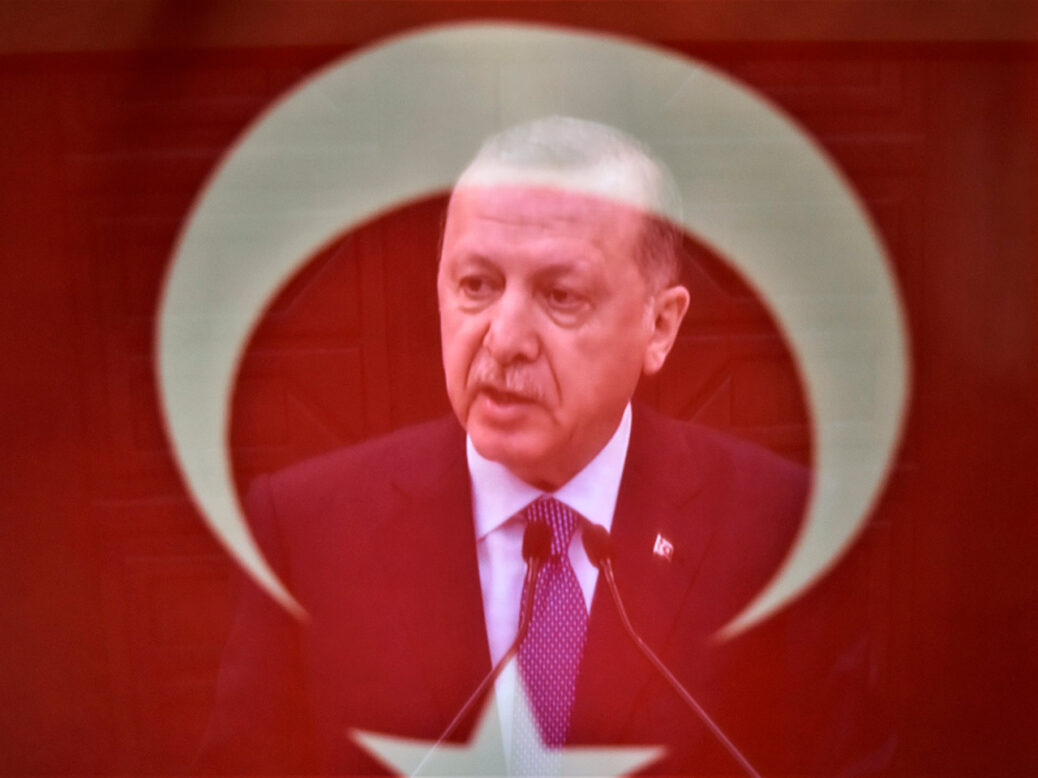
BERLIN – So drastically has Turkey changed during its two decades under Recep Tayyip Erdoğan that it is easy to forget the optimism surrounding his early years in power. In his first term as prime minister, from 2003 to 2007, Erdoğan presided over a series of reforms that moved the country towards becoming the European Union’s first majority-Muslim member state. The death penalty was abolished; new safeguards for free speech were introduced; the military’s influence over the judicial and education systems was curbed; and restrictions on teaching and broadcasting in Kurdish were lifted. In 2005 negotiations began with 2023 – the Turkish republic’s centenary year – mooted as a target year for accession.
But here we are in 2023, with the anniversary looming in October. The press and courts have been significantly cowed. Journalists and opposition politicians have been jailed. Erdoğan’s Justice and Development Party (AKP) has attacked the republic’s secular foundations and has concentrated vast powers in the office of president (which he has held since 2014). Internationally, Turkey has turned away from the West and towards Russia, China and Iran. It remains a democracy, just – albeit an increasingly hollowed-out one. But the country’s general election on 14 May could decide whether, in the coming years, it tips into outright autocracy.
What happened to the sunny hopes of the early 2000s? One explanation is that they were too sunny in the first place. Erdoğan always had a strong authoritarian streak. As mayor of Istanbul in 1996 he told an interviewer that “democracy is like a tram. You ride it until you arrive at your destination, then you step off.” And some fault inevitably lies with the country’s often fractious and self-sabotaging opposition, which failed to unseat him at successive elections or defeat his power grab (endorsed by referendum) following a coup attempt in 2016.
But a substantial share of the blame also lies with the EU. The union did much to build up Turkish membership hopes around the turn of the millennium, only to dash these in the second half of the 2000s. Angela Merkel and Nicolas Sarkozy, the German chancellor and French president from 2005 and 2007 respectively, were both markedly hostile to Turkish accession. (“We have to say who is European and who isn’t,” the latter sniffed.) That its membership talks stalled just as the EU ushered in two waves of central and eastern European states only added to the sense of Muslim Turkey being shut out of a Christian club. The union then missed further opportunities to improve relations, like binding Turkey to its foreign and security policy architecture, engaging with the Turkish opposition and pro-European elements in Turkish society, and brokering a resolution to the disputed status of Cyprus.
Erdoğan made his disappointment plain (“I seriously expected more from Germany,” he said in 2007), and polls showed Turkish voters cooling on the EU. Feeling spurned and without the incentive of membership driving reform, Turkey was drifting out of the European fold by the end of the decade. After the 2008 economic crisis the EU turned inwards, and rising powers, particularly China, offered Ankara an appealing alternative path. “Every day that passes Europe needs Turkey more and Turkey needs Europe less,” Turkey’s chief EU negotiator Egemen Bağiş remarked in 2010. The realisation of that dawned all too late on European leaders: both Paris and Berlin have sought rapprochements in recent years, in recognition of Turkey’s importance on topics like migration, energy and security. Russia’s full-scale invasion of Ukraine in February 2022 only accentuated that, with Turkey a crucial “pivot state” between the two sides.
[See also: The anger and hope the earthquake left behind]
Yet while the May election could seal Turkey’s alienation from the West if it brings Erdoğan’s re-election, it could also be an historic turning point if he is defeated. That is now a realistic chance. The fissiparous “Nation Alliance” of six opposition parties has finally settled on a presidential candidate, Kemal Kiliçdaroğlu, who as a mild-mannered and humble-living former civil servant could hardly be more different from the bombastic incumbent. Turkey’s ongoing currency crisis and the appalling death toll, currently estimated at 57,500, from the February earthquakes in the country’s south and northern Syria have both exposed the mismanagement and corruption of unchecked Erdoğanism. Four recent polls have shown Kiliçdaroğlu ahead by around ten points, and above the 50 per cent threshold (which would obviate the need for a run-off on 28 May). Of course, the lengths to which Erdoğan might go to cling to power are unclear.
If the opposition were to defeat the AKP, it would mark a once-in-a-generation chance for a reset in Europe-Turkey relations. The Nation Alliance is internally divided and would not break with Erdoğan on every subject, but its parties are agreed on the need to re-establish the parliamentary system and democratic checks and balances, and to thaw relations with the West.
If there is to be a new administration in Ankara the EU must seize the opportunity. In the long term, it should reopen the prospect of Turkish membership. For the short and medium term it should offer a new, upgraded association agreement including a deepened customs union, visa liberalisation and cooperation on shared climate, security and energy priorities. It should make increased and lasting investments in the reconstruction of zones devastated by the earthquakes. And it should make a concerted push for a settlement in the eastern Mediterranean, including appointing an EU special envoy on Cyprus. By raising Turkey’s hopes then dashing them, the union contributed to its authoritarian slide. If the Turkish opposition wins in May, the EU will have an unmissable opportunity to help pull it back.
[See also: Aubergines off the menu in Turkey as inflation bites]






